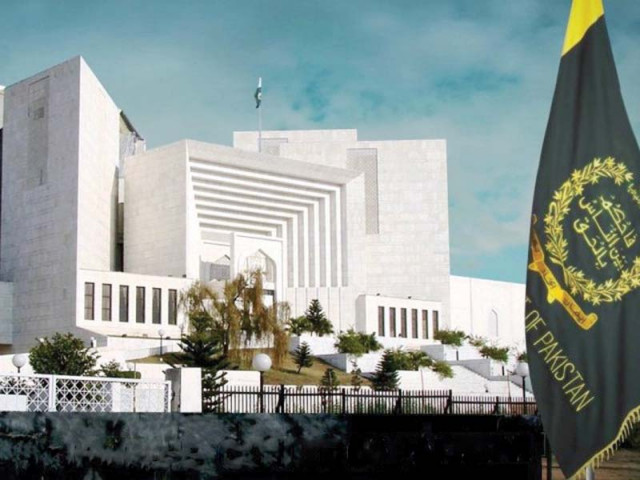New SC bench to hear Panamagate case afresh
PTI to boycott proceedings if judicial commission formed

PHOTO: EXPRESS
Last month, the Supreme Court’s five-judge bench started hearing a slew of petitions filed in the wake of the Panama Papers, which revealed that Prime Minister Nawaz Sharif’s family members owned offshore companies in international tax havens.
PTI wants top court to decide Panamagate case
In the last hearing, the SC bench had once again proposed to the major parties in the case — the Pakistan Tehreek-e-Insaf (PTI) and the ruling Pakistan Muslim League-Nawaz (PML-N) — to form a judicial commission to carry out a detailed investigation into the scandal.
However, when the legal team of Imran Khan’s PTI on Friday refused to accept the proposal for further probe through a commission, the SC’s current five-member bench adjourned the hearing till first week of January in view of paucity of time.
The court in a short order made it clear that the new bench shall start the proceedings afresh. “These matters shall not be treated as part heard for the reason that by that time, one of the members of this bench (CJP) will be laying down his robes,” reads the court order.
The incumbent Chief Justice Anwar Zaheer Jamali, who was also heading the bench and conducted 10 hearings of the case, will be given farewell on December 15 before the start of winter vacations.
His retirement, due on December 30, will dissolve the current bench. It is a tradition that once a chief justice is given the farewell, he does not sit on any bench. His successor – the new CJP – will reconstitute the bench having many options open in his hand.
The new CJP can replace the outgoing CJP by sitting himself in the bench or handing over the command of the new bench to Justice Asif Saeed Khosa, who will be the senior most judge of the top court once Justice Nisar assumes office.

Exercising his discretionary powers, the incoming chief justice can also increase the strength of the bench. Headed by Justice Jamali, the bench presently comprised Justice Asif Saeed Khosa, Justice Amir Hani Muslim, Justice Azmat Saeed Sheikh and Justice Ijaz ul Ahsan.
However, senior lawyers are of the view that the new CJP is not likely to be part of the new bench and Justice Khosa, known for his expertise in cases of criminal nature, will lead the bench. PTI chief Imran Khan has expressed the desire that the same judges should hear Panamagate case the next year.
The legal team of respondents was visibly jubilant over the postponement of case as it gave an apparent relief to the Sharif family, which was facing a tough time to establish the money trail of their London properties. However, the decision upset the PTI’s leadership.
On Friday, the bench was astonished to know the stance of the PTI’s lead counsel Naeem Bukhari who said if a commission was formed they would boycott its proceedings. Bukhari also asked the bench to decide the case, adding that they would accept the decision even if they failed to prove their case.
PTI rejects proposal for Panamagate probe commission
Quoting AK Barohi, Bukhari said, “Man lives in the womb of time.” He also referred to the statement of former CJP Justice (retd) Sajjad Ali Shah, who said two prime ministers of Sindh were sacrificed by the court but things changed in case of a prime minister from Punjab [Nawaz Sharif].
Awami Muslim League chief Sheikh Rashid also requested the court to hear the case and not to form a commission. Sheikh proposed the SC to verify documents through its registrar office.
Earlier, the PM’s counsel Salman Aslam Butt said, “We have decided to follow whatever the court decides. But I understand that they (PTI) are not interested in the commission.”
He said the prime minister’s name was not mentioned anywhere in the documents submitted by the PTI. “If the court decides to constitute a commission then we shall not object though we have many objections,” he added.
The PM’s children’s counsel Akram Sheikh said as far as the respondent 7 & 8 (Hussain Nawaz and Hassan Nawaz) were concerned they were overseas Pakistanis.
“We are with this court and we will not stand against the investigation and accept what the court decides. The court proceedings have been turned into a media trial and a vilification campaign has been started against the chief executive of this country,” he added.
Explaining reasons why a commission should be set up, the CJP said in case of formation of a commission the parties would be given ample opportunity.
He said if the bench declared a document unauthentic or accepted some document then the other parties would say that they were not given opportunity. “Therefore, we have proposed to set up a commission so that the parties should be given proper opportunity.”
Justice Jamali observed that this was a court of law and that they were bound by the law. He said under Article 184(3) the whole responsibility was on the court, while in the adversarial case the parties had to prove their case.
Tariq Asad, another petitioner, said the court should decide about the constitution of commission to investigate the matter. He said the court should not be influenced by the undue pressure and hue and cry in the media.
“It should be clear to everyone that we do not heed the pressure of any party and it is our prerogative to form the commission,” the CJP observed.
Published in The Express Tribune, December 10th, 2016.



















COMMENTS
Comments are moderated and generally will be posted if they are on-topic and not abusive.
For more information, please see our Comments FAQ